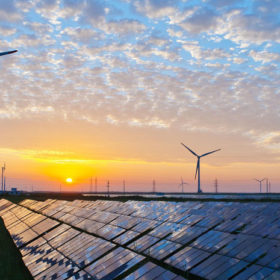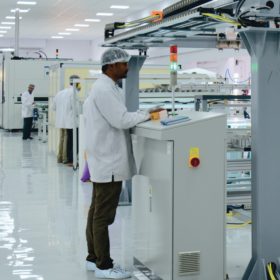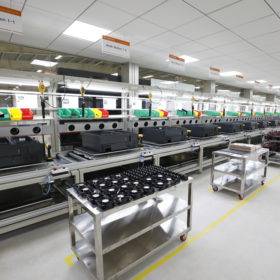Covid-19: The right treatment for India’s solar sector with comorbidities
This article talks about the areas the government needs to address both immediately and in the long run to help the ailing solar industry in the country.
Covid-19 Impact: Electricity demand has dipped by 25% since mid March
Disruptions in the industrial and commercial activities due to Covid-19 lockdown have further dented electricity demand in India which already registered a discernible decline in annual electricity demand. India’s electricity demand in the first 11 months of 2019-20 (April 2019-February 2020) grew by 2.2% (to 1191 billion units) compared with 5.4% annual growth in the same months of previous year.
Covid-19 and dependence on China’s PV supply chain
The Asian Development Bank says developing countries in Asia and the Pacific should consider developing their own solar industry supply chains as the Covid-19 pandemic has exposed their over-reliance on China to carry through the energy transition.
Covid-19: The going gets tough for solar manufacturers
Solar season had already started in the month of March. The demand for solar consumption is the highest during April-June quarter as summer picks up. This is the time when factory runs with full efficiency. India was estimated to install nearly 8 GW of solar panels in 2020, in which 90% consumption happens in utility-scale […]
Can solar industry tide over the Covid-19 crisis?
Planning ahead is crucial to ensure the Indian solar industry bounces back quickly and the slowdown is not carried forward to 2021-22, say BloombergNEF analysts even as they estimate 75% fall in PV imports in the first quarter of year 2020 over the previous quarter and revise annual capacity addition forecasts.
Sungrow signs 650 MW PV inverter supply deal with Avaada Energy
The Chinese inverter manufacturer will supply its 1500V 3.125 MW central inverter solution for Indian developer Avaada Energy’s upcoming PV projects in India.
Covid-19: Discom revenue dip could spell trouble for PV producers
Sliding electricity demand and declining commercial and industrial activity could prompt distribution companies to block or delay payments to solar power producers.
SECI tenders 5 GW of grid-connected renewable projects with storage option
The selected developers shall set up renewable power projects on build-own-operate basis anywhere in India and complement the generated renewable power with thermal power, if needed, to ensure round-the-clock power supply.
Project developers in south Asia can secure cash from IRENA funding pot
The Climate Investment Platform launched by three multilateral bodies in September is now open for business and renewables companies in developing nations across 14 regions including south Asia could qualify for help with clean energy facilities, renewables-related grid improvements and energy efficiency schemes.
Ministry explores alternatives to bank guarantees for solar projects
Lobby group the National Solar Energy Federation of India has welcomed the move and asked the Ministry of New and Renewable Energy to extend any such measures to existing contracts to help developers meet working capital requirements.













